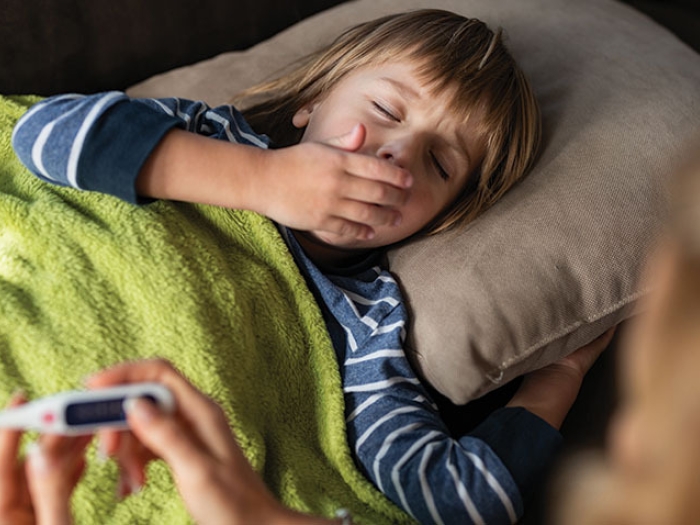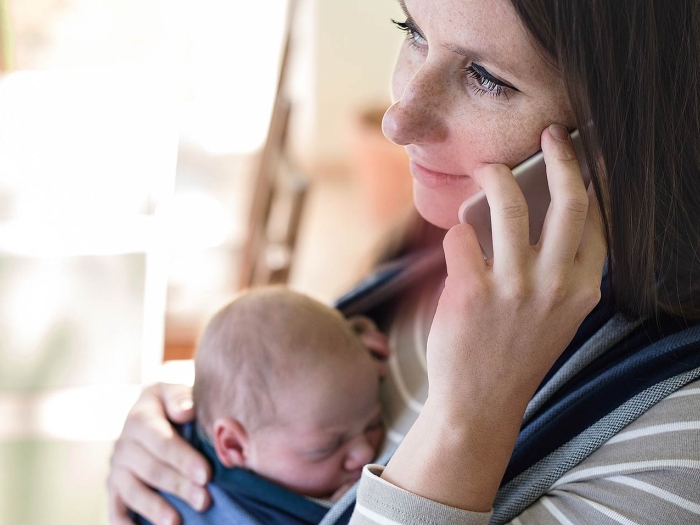A new poll finds that parents might rely on the hospital too often for minor issues. This primer for parents can help.
7:00 AM
Author |

It can be frightening any time a child is sick, leaving parents to debate whether a trip to the emergency department is necessary.
MORE FROM MICHIGAN: Sign up for our weekly newsletter
Such doubt is OK. Not every circumstance requires hospital care, says Kelly Orringer, M.D., director of general pediatrics at University of Michigan C.S. Mott Children's Hospital.
"When you're not sure what to do, call your pediatrician," she says.
But a new C.S. Mott Children's Hospital Poll on Children's Health found that caretakers don't always do this — or know another appropriate course of action.
Sore throats or minor burns, for instance, can be handled by a child's primary care doctor or an urgent care clinic. An emergency department is best equipped to treat difficulty breathing, seizures and change in mental status and severe bleeding, among other ailments, as well as major injuries and trauma.
Choking or a suspected swallowing of pills demands quicker action: Parents should call 911 or poison control, respectively.
But in the poll's nationwide sampling of 2,051 parents, only half were confident they would know what to do if their child were choking. And roughly 1 in 10 said they would take their young child immediately to the ED for a minor burn or ingestion of pills.
SEE ALSO: Make Sure Your Teen Has Had These 4 Lifesaving Vaccines
Coupled with the fact that 40 percent of surveyed parents lack first-aid training, the knowledge gap suggests families may rely too much on ED care in less severe scenarios — even though it comes with longer wait times and higher medical costs.
"Many visits to emergency departments are for nonemergent conditions," says Nicole Sroufe, M.D., M.P.H., medical director and service chief of children's emergency services at Mott.
That's why it's important for families to know the proper place to seek care.
Here's a breakdown to help make the decision easier:
ED, urgent care or call 911? What parents should know
Visit the ED if your child has:
-
Difficulty breathing
-
Severe allergic reaction (shortness of breath, lip/oral swelling, persistent vomiting, altered mental status)
-
High fever with headache and stiff neck
-
Suddenly hard to wake up
-
Sudden loss of sight, speech or movement
-
Broken bone pushing through the skin
-
Body part near an injured bone that is numb, tingling, weak, cold or pale
-
Heavy bleeding or deep wound
-
Serious burn
-
Coughing or throwing up blood
-
Fast heartbeat that doesn't slow down
-
Vomiting followed by dry mouth, not crying tears, no urination in more than eight hours or acting very sleepy/"out of it"
-
Rectal temperature greater than 100.4 degrees Fahrenheit in children less than 2 months old
Visit urgent care or a pediatrician for:
-
Nausea, vomiting or diarrhea
-
Coughs, colds and sore throats
-
Upset stomach
-
Bladder and urinary tract infections
-
Bumps, minor cuts and scrapes
-
Earaches
-
Sinus pain
-
Skin problems
-
Sprains and strains
Call 911 in case of:
-
Choking
-
Severe difficulty breathing
-
Head injury and the child is unconscious
-
Injury to neck or spine
-
Child is not breathing or has turned blue
-
Severe burn
-
Seizure lasting more than five minutes
-
Bleeding that can't be stopped

Explore a variety of health care news & stories by visiting the Health Lab home page for more articles.

Department of Communication at Michigan Medicine
Want top health & research news weekly? Sign up for Health Lab’s newsletters today!





